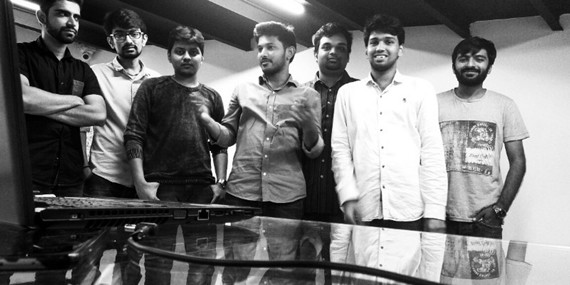Chirag Dodiya, Founder and CEO at Plorez has been a sincere upholder of No Sir No Madam ideology in his life. Plorez is a startup driven community of entrepreneurs. They help young startups to build their online business with the help of IT, development, marketing, and many other services.
Chirag is a management studies graduate from Mumbai University. At the age of 15, he started his enterprise. Along with Plorez, he also manages to be a guiding hand for different firms. Having started his company at a young age, his employees consisted of friends.
Therefore, he states — We never had to adopt the first-name system at our firm. Being of the same age group, we just addressed each other with our first-names. This has created a friendly and cordial environment in our organization. Although, there have been instances where some new employees referred to me as ‘Sir’. I felt awkward as I am not used to salutations, and because they were older than me.
Even while interacting with his clients and investors, Chirag maintains first-name greeting with them. He believes, establishing a first-name relationship, makes the meeting more transparent and strengthens the connection.
Chirag was inspired to follow No Sir No Madam tradition in his company because of his tenure in private sector. When he had started his career, he had to attune himself to ‘Sir/Madam’ order. He mentions, “Salutation compulsion in corporate organisations creates a psychological gap between employees.” Moreover, he conveys that in private companies, one has to spend more focus and energy on presenting himself rather than letting his or her work do the talking.
Similarly, public sector employees too exercise ‘Sir/Madam’ Culture stringently. He is familiar to the orders a person has to adhere to while visiting any bureaucrat’s office. Although, on his recent visit to the ‘Mantralaya’, he was surprised by the salutation ridden communication there. He voices “It is rare for public officials not to expect to be addressed as ‘Sir/Madam’.
Hence, I was amazed to see officials practicing the first-name habit.” He ventures that change is slowly and gradually coming within our society. New government officials and bureaucrats have instilled the exercise of referring each other on a first-name basis.
However, there is one demographic section in our society that continues to face the injustice caused by salutation edict. Workers and laborers are belittled for the work they do. Chirag suggests it is high time that they start addressing their employers without any salutation. It would help us to understand their plight and be compassionate for them. Liberating them of all these unnecessary compulsions would boost their morale.
To hasten the remodeling process of our mindsets, Chirag recommends implementing No Sir No Madam teachings in schools. Along with students, teachers should also be informed about No Sir No Madam ethics. In addition, he comments “the education system in our country is old and needs to be restructured.”
Furthermore, he endorses to hold conversations with top-level executives and officers regarding No Sir No Madam cause. Diffusing a new idea is easy when influential people embrace it. He also proposes every single individual to help in spreading awareness about first-name practice.
In conclusion, he quotes “Collaboration is essential for growth of any company or society. It happens only when people meet and connect. No Sir No Madam culture will make this process less tedious and help person in understanding each other.”







Add comment